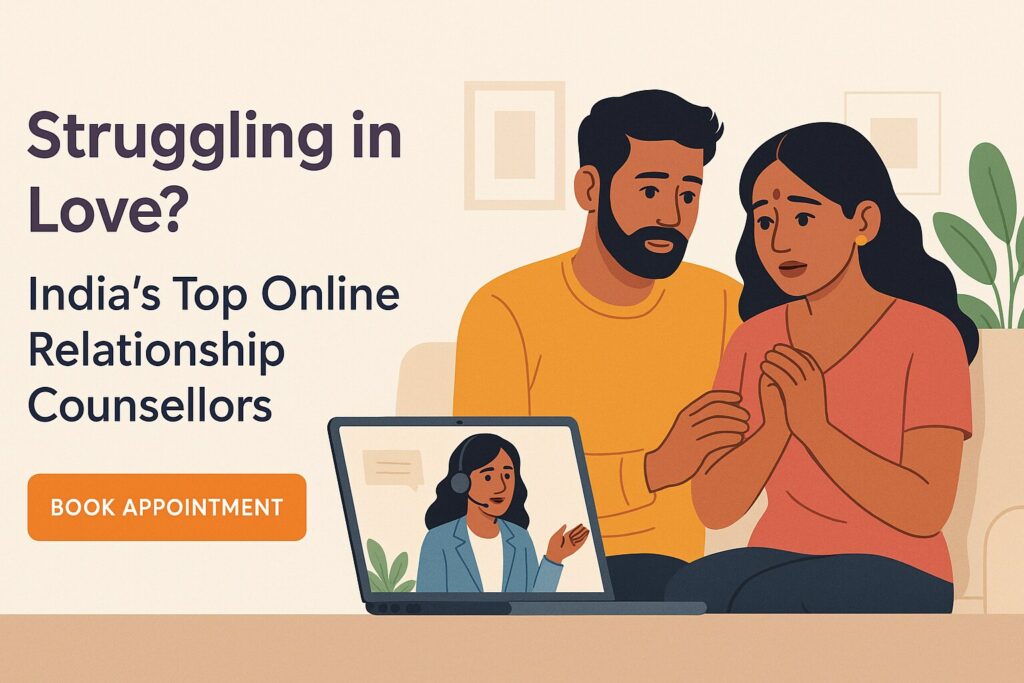Are you dating for a long time and thinking about getting married? Or maybe your parents arranged your marriage, and while you like each other, you’re unsure about each other’s likes, money habits, career plans, how you’ll raise kids, or handle household chores and tough situations.
Maybe you need to talk about past relationship issues or different sexual needs. There are so many important things to discuss, and you need a safe, professional space to ask these questions. That’s where pre-marital counseling comes in.
We made this guide with important premarital counseling questions to ask your partner. These questions are helpful not just for counseling but also if you’re engaged or thinking of getting married. Asking them will help you understand your partner better and build a stronger relationship.
What is Premarital Counseling?
Premarital counseling is a type of therapy that helps couples get ready for marriage. It gives you a safe space to talk about important things like:
- How to talk and listen to each other well.
- Understanding each other’s spending and saving habits.
- Discussing your job goals and how to support each other.
- Deciding who will do what around the house.
- Talking about how you want to raise children if you have them.
- Learning how to deal with disagreements in a healthy way.
- Discussing your sexual needs and expectations.
- Addressing any issues from previous relationships.
Premarital counseling helps you build a strong foundation for a happy and healthy marriage by making sure you’re on the same page about these important topics.
Types of Premarital Counseling
While the main goal of premarital counseling remains the same, therapists use different methods to achieve it. Here are some common types:
Talking Therapy
Couples chat with a therapist, either together or separately. The therapist helps them talk about their goals, values, and any problems they might face.
Gottman Method
This method focuses on getting couples closer emotionally and improving how they talk to each other. The goal is to make your friendship stronger, bring you closer, and teach you how to solve problems to make your relationship better.
Emotionally Focused Therapy (EFT)
EFT aims to make couples feel more connected and understand each other’s needs better. Therapists help couples express their feelings to strengthen their bond.

Faith-Based Counseling
For couples who share religious beliefs, this counseling includes spiritual values. Therapists might be religious leaders or counselors who know how to mix faith with relationship advice.
Psychodynamic Couples Therapy
This method looks at how past experiences and family life affect how couples behave now. Therapists help couples understand how things from their past can affect their relationship today.
Why Consider Premarital Counseling?
You should think about premarital counseling because it can help you in many ways. Here are some reasons why it’s a good idea:
- You can learn to talk and listen better.
- You will build trust and get emotionally closer.
- You can address past relationship traumas or life traumas.
- You will discuss how to focus on each other’s careers.
- You can plan how to take care of household responsibilities.
- You will learn to avoid arguments and talk in healthy ways.
- You can understand each other’s sex needs and preferences.
- You will manage relationships with each other’s families.
- You can figure out where you might disagree and talk about it.
- You will talk about what you both want in life.
- You can balance work and home life.
- You will get ready for big changes, like moving or having kids.
- You can set realistic expectations for your married life.
- You will develop a better understanding of each other’s beliefs, values, and routines.
- You can plan your future together, just like planning your wedding.
What to Expect in Premarital Counseling
Premarital counseling sessions can vary, but you can generally expect to answer many questions about everything from your childhood to your thoughts on finances, sex, and career goals. The goal is to explore topics you might not have thought about or discussed in depth as a couple.
Each session usually focuses on one specific area, but over time, you’ll cover a wide range of subjects, including how you communicate family dynamics, and any past relationship patterns that might affect your current relationship.
Challenges Of Premarital Counseling
Premarital counseling is valuable but can present challenges. It’s important to be aware of these potential difficulties so you can address them and make the most of your counseling experience. Here are some common challenges you might face:
- You may feel anxious about what issues might come up during counseling.
- You might find it uncomfortable to talk about values, beliefs, and partnership roles for the first time.
- Hearing your partner’s honest thoughts can lead to hurt feelings or conflicts.
- Counseling might reveal irreconcilable differences, leading you to reconsider marriage.
- You may struggle to find affordable counseling options
- You might find it difficult to fit counseling sessions into your busy schedule.

How Much Does Premarital Counseling Cost?
Premarital counseling can cost anywhere from $100 to $300 per session, depending on where you live. On average, expect to pay around $125 to $175 for each 60-minute session, and most couples do about five sessions. But places like PsychiCare offer online premarital counseling for just ₹2500 a session (that’s about $30)! It’s super accessible and easy on the wallet, making it a popular choice for couples worldwide.
Premarital Counseling Questions for Engaged Couples
For Children:
- Do we want children?
- How would you raise our children?
- What was your own childhood like?
For Financial Goals:
- What are your financial goals?
- Are you financially stable?
- How will you split your finances?
For Handling Conflict:
- How do we handle conflict?
- How do you handle disagreements?
For Influence of Parents’ Marriage:
- Are you influenced by your parents’ marriage?
For Personal Needs and Preferences:
- How much alone time do you need?
- What are your non-negotiables?
- What do you find difficult to talk to them about?
- What goes on social media?
- Do you have any secrets?
- What’s your dream holiday?
- How important is your career?
- How do you feel about pets?
- What does your retirement look like?
For Intimacy and Relationships:
- What is your love language?
- Are your needs being met?
- How do you feel about your sex life?
- How will you handle differing sex drives?
For Dealing with Change:
- What constitutes cheating?
- How do you deal with change or the unexpected?
- What happens if you feel like you’re drifting apart?
For Future Planning:
- Where do you see us going in life?
- Are our goals in life aligned?
- What are your political views?
How To Prepare For Premarital Counselling Session?
Preparing for a premarital counseling session can help you make the most of the experience and address important topics effectively. Here are some tips to get ready:
- Write down questions you want to ask your partner.
- Prepare a list of questions for the counselor.
- Be punctual for your sessions.
- Attend individual sessions if needed.
- Think about what you want from your marriage.
- Talk to your partner about any worries or doubts you have.
- Approach counseling with a positive attitude and work together as a team.
- Use the sessions to understand each other better and make your relationship stronger.
How Long Is Premarital Counseling?
Premarital counseling isn’t the same for everyone. It usually doesn’t take too long, but it depends on what you need. Each session is about 45-90 minutes, and most couples go to about 5 to 10 sessions. That means it could take anywhere from 2 to 8 months in total.
What If Only One Partner Wants Premarital Counseling?
It’s okay, this happens sometimes. Instead of arguing, try to understand why they feel this way. Ask them what they’re worried about or what they think will happen in counseling. Listening to them without getting upset is important.
If your partner is worried about being judged, let them know counseling is about helping both of you, not blaming anyone.
If they still don’t want to go, you can try going to counseling alone. Working on yourself can still make things better in your relationship.
But if you both still need counseling, even after trying alone, talk to your partner about why it’s important.
How to Find the Right Therapist for Premarital Counseling
Finding the right therapist for premarital counseling is crucial. Here’s how you can do it:
- Start by asking for recommendations
- Look for therapists who specialize in couples or premarital counseling.
- Check online directories or therapist listing websites.
- You can use PsychiCare, the website with top-rated premarital counselors.
- Read therapist profiles and reviews to see if they seem like a good fit for you and your partner.
- Schedule a consultation or initial session to see if you feel comfortable with the therapist.
- Trust your instincts and choose a therapist who you both feel comfortable talking to.
- Remember that it’s okay to try out a few different therapists before finding the right one for you.

Frequently Asked Questions
What Is Premarital Counseling?
Premarital counseling helps couples prepare for marriage by discussing important topics like communication, money, sex, career, and expectations. It aims to build a strong, healthy relationship by addressing potential issues before they become serious problems.
Why Is Premarital Counseling Important?
Premarital counseling is important because it helps couples identify and resolve potential issues, improve communication, and set clear expectations for married life. This preparation can lead to a stronger, healthier relationship and reduce the risk of future conflicts.
Who Should Attend Premarital Counseling?
Any couple planning to get married can benefit from premarital counseling. It’s especially useful for those who want to discuss important topics, improve their communication skills, or ensure they are aligned on key issues.
What Topics Are Covered In Premarital Counseling?
Premarital counseling covers communication, finances, sex, family dynamics, children, conflict resolution, and personal values. Addressing these topics helps couples build a strong foundation for their marriage.
How Long Does Premarital Counseling Last?
Premarital counseling usually lasts between 5 and 10 sessions, with each session being 45-90 minutes. This typically translates to a total duration of about 2 to 8 months, depending on the couple’s needs.
How Much Does Premarital Counseling Cost?
The cost varies from $100 to $300 per session. On average, sessions cost between $125 and $175. Some therapists, including those at PsychiCare, offer more affordable online sessions, around ₹2500 ($30) each.
What Should I Expect During Premarital Counseling Sessions?
Expect to discuss various topics, from childhood experiences to finances and communication styles. Sessions focus on resolving potential issues, improving communication, and setting expectations for marriage.
How Do I Find A Premarital Counselor?
Look online, ask for recommendations from friends or family, or consult your healthcare provider. Platforms like PsychiCare also offer top-rated premarital counselors who can provide guidance and support.
Can Premarital Counseling Prevent Divorce?
Premarital counseling can help reduce the risk of divorce by improving communication, resolving conflicts, and setting realistic expectations. This preparation helps couples build a stronger, more resilient relationship.
What If My Partner Doesn’t Want To Attend Premarital Counseling?
If your partner is hesitant, discuss their concerns and highlight the benefits. Consider attending sessions alone to work on your relationship dynamics and show your commitment to improving the partnership.
When Is The Best Time To Start Premarital Counseling?
Start premarital counseling before getting engaged or setting a wedding date. Ideally, begin six to nine months before the wedding to address potential issues and build a strong foundation.
What If We Have Already Started Planning The Wedding?
It’s never too late to start premarital counseling. Even if you’ve begun planning, counseling can still provide valuable insights and help resolve any issues that may arise during the process.
What Are The Most Common Issues Faced By People In Pre-Marital Relationships?
Common issues include communication problems, money disagreements, different views on having children, and unresolved personal or family issues. Premarital counseling helps address these concerns to strengthen the relationship.




